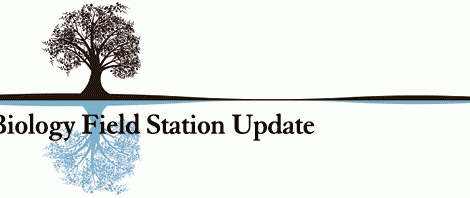
Biology Field Station Update

Biology Field Station summer interns get a behind-the-scenes tour of the Newport Aquarium and discuss joint research projects for the coming year.
Undergraduate research internships at the Biology Field Station draw students from across the country.
Each summer, the Center for Ohio River Research and Education at the Thomas More College Biology Field Station offers paid internships in the fields of aquatic biology, ecology and environmental science. Projects involve animal husbandry of fish and mussels, aquaculture, aquatic toxicology, river and stream sampling, bio-assessments and DNA sequencing. This year, 19 undergraduate students were selected from a pool of 70 applicants from around the country. Half of the positions are awarded to Thomas More College students and the other half to students from different colleges and universities. These unique opportunities offer hands-on experience, develop research skills and create connections to professionals for students to meet their long-term career goals.
The largest project entails a bio-assessment of the Ohio River. This study is part of the long-term monitoring of the Ohio River near Zimmer Power Plant in Moscow, Ohio, which began in 1971. Work includes physiochemical sampling, fish collections, and habitat analyses. Interns include Mitchell Kriege and Lane Taul from Thomas More College, Lucas Corbin from Juniata College (Penn.), Rachel Kaiser from Western Kentucky University, Emily Richardson from St. Francis University (Ind.), Amanda Smith from the University of Wisconsin, Stout, and Kristen Slodysko from the University of Washington, Seattle. Yes, Kristen came all the way from Seattle to work on the Ohio River! She indicated, “I’m grateful and excited about my summer internship and the opportunity to expand my knowledge of the natural world and gain invaluable scientific skills and knowledge.”
The second research project involves extensive stream assessments throughout Northern Kentucky, in conjunction with the Sanitation District No. 1 and the Boone County Conservation District. Interns work alongside biologists from these agencies to conduct bacterial tests, physiochemical sampling, fish and macroinvertebrate collections and habitat analyses. Maria Vogel and Peter Curnutte from Thomas More College, along with James Brown from Northern Kentucky University, serve as the stream assessment interns.
Another internship project entails working in the aquaculture lab at the Field Station, designed for the propagation of fish used in aquatic toxicology studies by the USEPA. Work includes daily harvesting of eggs, physiochemical sampling, tank maintenance and toxicity testing. In addition, interns conduct experiments, in collaboration with the Ohio State University, to identify fish species that serve as hosts for native mussel larvae. This year’s aquaculture interns are Kristin Klocke and Craig Schutzman from Thomas More College and Emily Myers from Xavier University.
Lastly, many interns serve as environmental educators for the Field Station’s extensive STEM outreach program, including grade school field trips and high school summer camps. Kevin Poe and Rodney Holder from Thomas More College are in their third year as educators, while Nicole Wartman from Northern Kentucky University is a first-year environmental educator. In addition, Kevin was selected as one of four NASA STEM fellows, along with fellow Thomas More students Sarah Gleick, Ashley Norris, and Erin Rowekamp, to develop STEM lessons and other curricular materials for the outreach programs.
Funding for the internships has come from a variety of grants, including the Boone County Conservation District, DUKE Energy Foundation, Sanitation District No. 1, the Toyota USA Foundation, and the U.S. Fish & Wildlife Service.

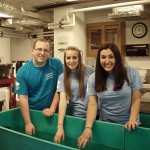
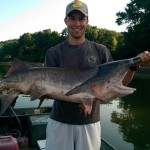
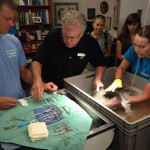
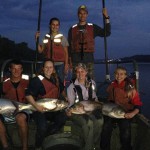
Comments are closed, but trackbacks and pingbacks are open.